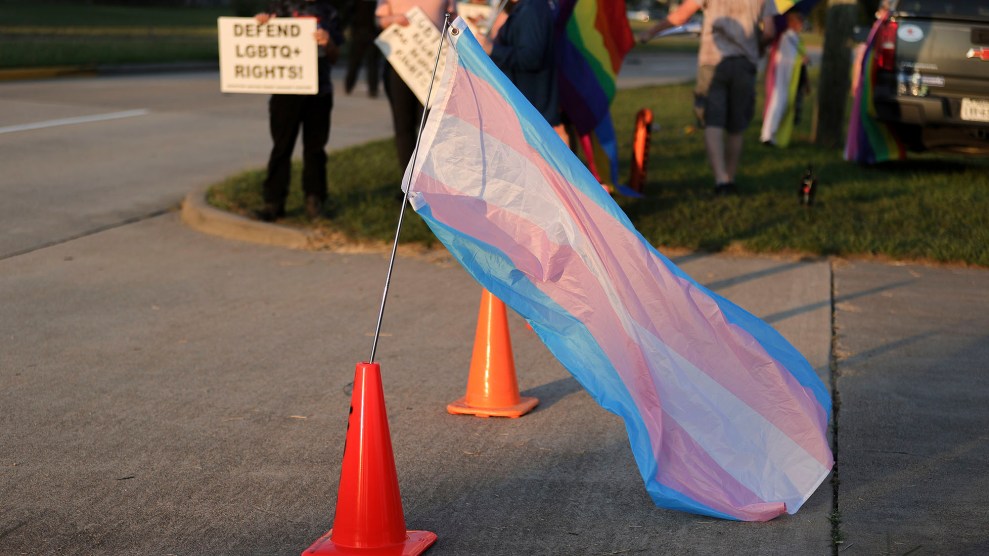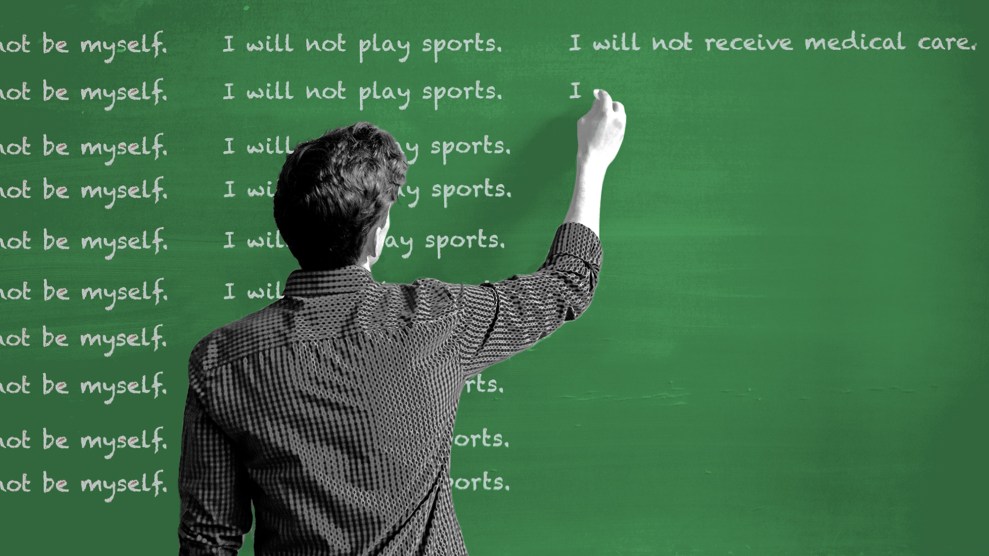
Reginald Mathalone/NurPhoto/Associated Press
On Thursday, Butte, Montana, became the first documented place to legally cancel an event because the speaker is trans.
As NBC Montana reported, a lawyer with Butte-Silver Bow County informed the local library that its LGBTQ history event with transgender speaker Adria Jawort would not be taking place. The reason given? House Bill 359, which limits public displays of drag. After the cancellation, Jawort tweeted, “The irony is I testified against this bill saying it would target trans people that would include of course me. They denied it. Now here I am, targeted.”
The law, signed by Montana Gov. Greg Gianforte in May, was supposedly intended to prohibit the popular Drag Story Hour events. It also bans “sexually oriented or obscene performances on public property,” like libraries, and defines both “drag king” and “drag queen” as “a male or female performer who adopts a flamboyant or parodic male [or female] persona with glamorous or exaggerated costumes and makeup.” The ban includes a private right of action clause that allows minors and guardians to sue performers and those associated. In an email to NBC News, bill sponsor Rep. Braxton Michell wrote, “I’ve asked this question from the beginning, why do these people want to dress half naked and read books to kids? Never got a single answer.” When asked to provide evidence of half-naked performances, NBC reported, Michell did not respond. In fact, most drag is not sexually explicit at all.
The law, which is similar to anti-drag laws passed in 6 other states, has been criticized for its language that is broad enough to ban flamboyant cisgender performers in addition to LGBTQ ones. The Montana law is one of 26 bills that have been introduced nationwide this year aiming to limit drag performances.
“I am very concerned about all the ways that current criminal laws and new acts will be disparately enforced against trans people and drag performers,” Tweeted ACLU lawyer Chase Strangio. In a December 2022 interview with the Atlantic, Strangio explained its not just about drag: “If what you really want is to target queerness and transness, then drag is a huge part of that. It’s a visible celebration of culture.”
The canceling of Jawort’s talk is case in point. Jawort, a two-spirit member of the Northern Cheyenne tribe and the political director of the group Indigenous Vote, was slated to talk about the history of queer identity in Native communities. Jawort is not a performer of any kind. But she is a self-described “flamboyantly dressed trans woman.” Jawort’s situation—a trans woman, trying to give an educational speech in a library—demonstrates that what actually motivates these laws is not shielding minors from sexually explicit content. Instead, drag bans are about silencing queer culture and restricting trans existence, working toward the larger goal of removing trans people and culture from public spaces.
Whether these drag bans will stick is still up in the air. Tennessee’s ban was struck down by a Trump-appointed judge for being anti-free speech. And the ACLU (with the help of RuPaul’s Drag Race) has been fighting against the laws as well.
In the meantime, legislatures have introduced 550 anti-trans bills so far this year.
Correction, June 8: An earlier version of this story misstated the status of anti-trans bills in the legislature this year.
















